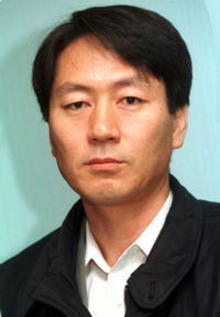 |
Sotoka and others are very nervous about the way the situation is unfolding. "What has become clear in the course of redefining U.S.-Japanese security is that even after the end of the Cold War, Japan has been unable to shed its complete dependency on the U.S. That is very dangerous for Japan, because it is in a country’s interest to be ultimately responsible for its future. It should carry its own ’traveling papers’ and think of what Japan’s new role should be first, and only then talk with the U.S. about the direction of U.S.-Japanese security. What Japan needs half a century after the alliance was born is to start all over for the sake of a true alliance." Does Korea have its own traveling papers? Fortunately Article Nine of the Japanese constitution acts as a restraint against the U.S. doing whatever it wants, despite the schemers ruling the Japanese right, who would have otherwise. Who issues Korea its traveling papers, when Korea steps right up and agrees to "strategic flexibility" for the U.S. military without even having wartime command authority. There are all sorts of wild things going on these days in relation to the question of Korea getting its wartime command authority back; so much so, it makes you wonder if Korea is a sovereign nation. Big-name experts in Korea and abroad go as far as to suggest that in this era of cutting-edge technology there is no such thing as a country that does not have "independent defense." Is not independent, sovereign defense the foundation of a healthy alliance? It looks like there are some people who envy what Japan has done. It has succeeded in hiding its war crimes and acted like an ass in a lion’s skin for half a century, so it might be understandable that it wants to again be held in America’s arms during this chaotic period. Still, these experts warn that this is a "positively dangerous path." What reason does Korea have to bet its life on the same kind of path? Does it feel nostalgia for the days when it used someone else’s traveling papers and lived off rice cake leftovers, on land that might as well be an island, and amidst the tears of families separated by the peninsular division? The privileged class always got first-rate traveling papers, so they might indeed feel this nostalgia. There are media outlets that worry more about the citizens of the suzerain nation than the many people in their own country and the visionless, incompetent, and irresponsible bureaucratic leaders that don’t do anything right other than look out for their own interests. Hopefully they’re not after the same kinds of things when they suggest Korea doesn’t need "independent defense."





